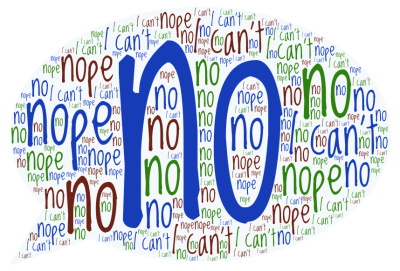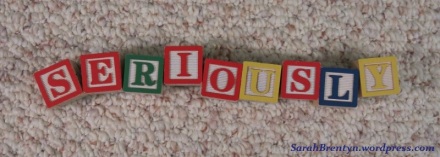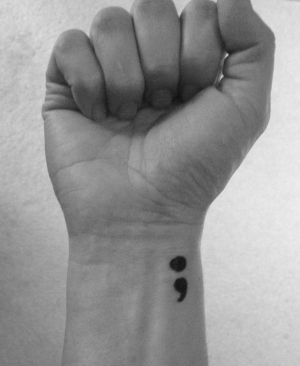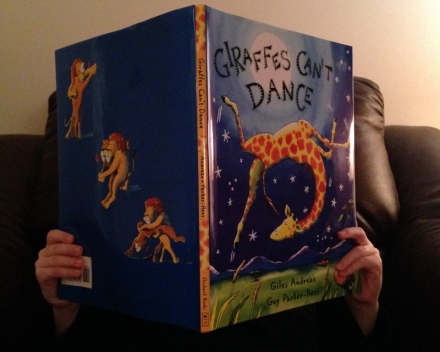
Your friend asks if you would edit her essay. Your kid’s teacher asks if you would run the bake sale. Your boss asks if you would stay late.
What do you do?
When you can’t take on one more thing? When your plate is overflowing? When you simply don’t want to?
Has anyone here mastered the art of saying “No”?
You in the orange shirt.
“Um…open your mouth and say the word ‘no’.”
Hmm. Interesting.
*pushes button*
*person in orange shirt drops through trap door*
Anyone else?
Good. Now that we’re all on the same proverbial page, let’s talk.
Some will say it varies. It depends on who is asking and what they’re asking. I’ll allow this line of reasoning. To a point. This is part of the issue.
I mean, really, if your boss asks you nicely (or not-so-nicely) to stay late, most people say, “Sure, you wretched piece of…” or probably just, “Sure.” Some people, like me for instance, say, “Of course! Not a problem!” Then those people, like me for instance, wonder what just happened.
If a friend wants help with a project, most people will probably help but they’ll be honest about what kind of time they have to offer. After all, their friend will understand. Some people, like me for instance, will sigh internally and not speak up about my lack of time and tell them to send it (if they haven’t already sent it because they know I’ll say yes).
It’s easier to say no to the bake sale request. Or so it would seem. But then some people, let’s say…um…me for example, begin thinking about the last time they assisted in any of their son’s school activities. Then, when they can’t remember (because it was like 7 months ago), say, “Absolutely!”
These answers come from negative emotions such as obligation or worry (employer), fear of upsetting someone (friend), and guilt (school).
For one who has not mastered the art of saying no, or even taken classes in it, this can be problematic regardless of the circumstances.
And for one who feels guilty or obligated or in some way responsible for making everyone happy, saying no to demands on your time can be damn near impossible. This is what I lovingly call The Yes Mess.
I want to scream. I want to scream loudly, “Hell, no! Are you kidding?! I couldn’t fit another thing into my schedule if I wanted to! I’m not a robot! Aaaahhhhh!” Or something like that. Instead, I say, “Sure! No problem!”
It is a problem.
I feel like this is linked to self-worth. By neglecting myself for others, I’m basically saying that other people’s projects, assignments, happiness, work, time, etc. are more important than my own. In other words, other people are more important than I am.
They’re not.
I need to remember that.
Instead of immediately saying yes to everything, I am making myself a promise to say, “Probably.” Or “I think so.” I know. It’s ridiculous. It’s not even close to a “no” but it’s as close as I can realistically get at the moment. Baby steps. Plus, this might make it easier to come back and say that I can’t.
If I’ve already agreed to something, that is even more difficult for me. I don’t want to let people down so I run myself into the ground making sure I do it. Or I let it slip through one of the numerous cracks in my life and feel horribly guilty.
So. If I say yes, I am giving myself permission to say, “I thought I could fit this in my schedule but I just can’t right now.”
I am not exaggerating when I say this stuff stresses me out, hurts my health, and keeps me up at night.
My health and well-being (and that of my family) must come before any demands on my time.
That’s really the end of that. Let’s see how this goes.
Have you mastered the art of saying “no”? If not, why? If so, how do you do it?









 “A semicolon represents a sentence the author could’ve ended, but chose not to. The author is you and the sentence is your life.”
“A semicolon represents a sentence the author could’ve ended, but chose not to. The author is you and the sentence is your life.”